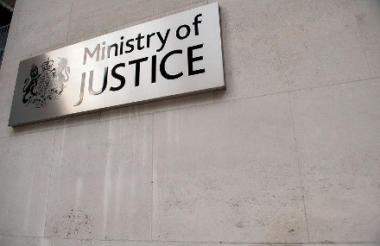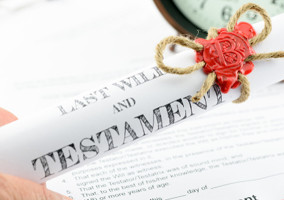The government has bought before parliament new legislation that will increase probate fees paid on the value of estates, which some believe could cost the charity sector more than £10m a year in lost legacy income.
Justice minister Lucy Frazer laid the proposed legislation before parliament yesterday, and said the new tax would introduce a “new, banded structure of fees” for grants of probate on estates.
She said that probate fees “will never be more than 0.5 per cent of the value of an estate” and that the government would be “raising the estate value threshold from £5,000 to £50,000” which would lift “around 25,000 estates annually out of fees altogether”.
Frazer said that, for estates which will pay probate fees, around 80 per cent “will pay £750 or less, and all income raised” by the new tax “will be spent on running the courts and tribunal service” for contested wills.
She said this new, banded fee model “represents a fair and more progressive way to pay for probate services” compared to the current flat fee mode.
A similar model was proposed in early 2017 but was shelved ahead of the election. Charities warned at the time the model could cost the sector millions.
In an open letter published by The Times in July 2017, a number of legacy and charity umbrella groups including the Institute of Legacy Management, the Charity Finance Group, the Charity Tax Group and the Small Charities Coalition, called on government not to reintroduce changes.
Last year, ILM estimated the changes could affect charities by as much as £18m a year in lost legacy income. It has since revised that figure down to £10m a year in lost income for charities.
'Stealth tax'
Matthew Lagden, chief executive officer of ILM, said the proposed rise in probate fees would “significantly reduce income for charities reliant on legacy gifts”.
Lagden said: “The Institute of Legacy Management is deeply concerned by the proposed rise in probate fees from a flat rate of £215 (£155 if the grant is obtained by a solicitor) to a maximum of £6,000.
“The new fees would significantly reduce income for charities reliant on legacy gifts, to the tune of £10m a year, at a time when many charities are struggling to meet increasing demand for their services.
“The government’s own impact assessment acknowledges that the current fees cover the average costs of making a grant of probate, so we are clear that this is a stealth tax, which will be borne in part by charities.
“We are also very concerned that the government’s impact assessment dismisses the costs to the charity sector as ‘not expected to be substantial’, when the £10m lost to this tax would fund vital services across England and Wales.”
Nicola Evans, observer members of CTG and a charities counsel at law firm BDB, said: “The government should be transparent about what it is trying to do here, which is to replace the current fixed fee with a new probate tax designed to subsidise other parts of the courts system. Tinkering with the figures does not change that.
“The structure of the ‘fee’ is the same as it was in 2017, when the Spring Budget papers admitted it would be classified as a tax in the National Accounts and when a Parliamentary Committee raised serious concerns at an attempt to raise taxation without Parliament’s consent.
“If passed, the new tax will side-step the long-established exemptions and reliefs of the inheritance tax regime, including the charity exemption. Astonishingly, the government’s impact assessment does not try to assess the cost to the charity sector, instead brushing it off as ‘not expected to be substantial’.”
'Sector cannot afford to risk losign legacy income'
Sector leaders called on the government to introduce a discount or exemption for charities.
Rob Cope, dierctor of Remember a Charity, said: “While government expects to generate £185m from the increased charges by 2022/2023, it is important to remember that charitable bequests are worth almost £3bn a year for good causes. The sector cannot afford to risk losing legacy income and we call on government to consider the potential disproportionate impact of this decision.
“We will be urging government to offer a reduction in probate fees for estates that include a charitable gift, helping to mitigate the impact of the fee increase and taking us a step closer to achieving our shared ambition of making the UK the first country in the world where gifts in wills is a social norm.”
Caron Bradshaw, chief executive of Charity Finance Group, added: “We pressed government to put in place a charitable exemption for probate fees to ensure maximum funds go on the causes those donors intended through their legacies. The principle that money given for charitable purpose should not be taxed should apply equally to probate, and whilst government might have made it clearer and simpler for general administration, they’ve missed an opportunity to support charity.”
New banded fee structure
A spokesman from the Ministry of Justice said that, under the proposed new banded structure, the maximum probate fee will be £6,000, payable on estates “worth more than £2m”. He said this was a 70 per cent reduction on the “£20,000 cap planned for this category last year”.
He also confirmed that the MoJ would publish “a guidance document” before the legislation comes into force.
Currently fee for probate is a flat £215 for individuals, and £155 for those applying through a solicitor. All estates valued at under £5,000 are exempted from any fees.
The MoJ spokesman said the government hoped to have the legislation through parliament by April next year.
|
Related Articles











